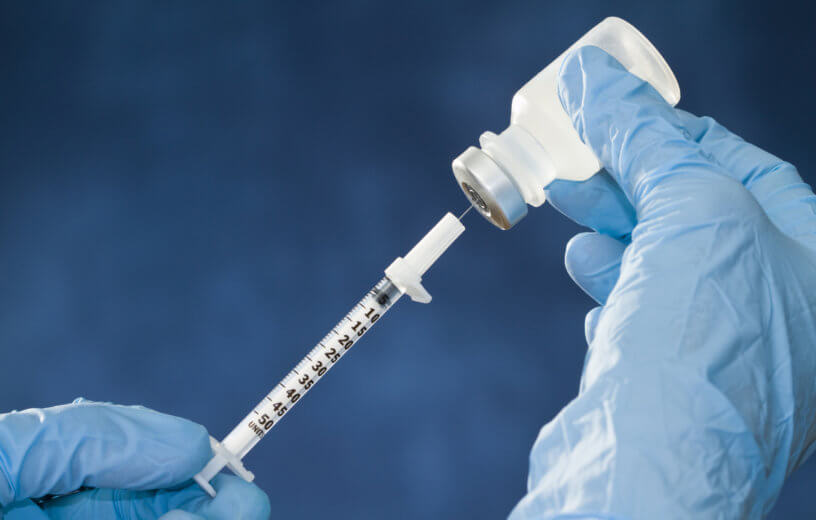BEIJING, China — While the success of COVID-19 vaccines fill headlines around the world, scientists say a very similar injection may be the first step in developing a vaccine against cancer. A new study finds an immunotherapy vaccine using hydrogel can successfully attack cancerous tumors and stop the disease from spreading in lab mice.
Researchers from the National Center for Nanoscience and Technology in China say an injection of a specialized hydrogel slowly releases RNA nano-vaccines over a 30-day period. In mice with melanoma, the deadliest form of skin cancer, the drug shrank tumors and kept cancer cells from metastasizing in the lungs.
How does the cancer vaccine work?
Just like the COVID-19 vaccine, this new treatment uses messenger RNA (mRNA) to activate the immune system to fight diseases. Instead of signaling the body to target the coronavirus, the mRNA vaccine for cancer tells the immune system to attack tumors.
“These vaccines contain mRNA that encodes proteins made specifically by tumor cells. When the mRNA enters antigen-presenting cells, they begin making the tumor protein and displaying it on their surfaces, triggering other immune cells to seek and destroy tumors that also make this protein,” researchers write in a media release from the American Chemical Society.
Unfortunately, mRNA is very unstable and degrades quickly due to enzymes in the human body. Previous attempts to use nanoparticles to carry and protect mRNA have been unsuccessful because the body clears these particles out in less than two days.
In this study, researchers Guangjun Nie, Hai Wang, and their team developed a hydrogel alternative to deliver the cancer-killing messengers. Hydrogel is a water-absorbing polymer which is compatible with the human body and can even transmit bioelectrical signals. When the new vaccine is injected into the skin, it slowly releases mRNA nanoparticles along with a molecule which helps to trigger the immune response.
‘Long-lasting and efficient immunotherapy’
Researchers used a protein from chicken egg whites (ovalbumin) in their model antigen. They mixed the ovalbumin mRNA and the triggering molecule with other compounds to create the hydrogel.
The team then injected this compound under the skin of each mouse. These particular mice dealing with melanoma had also been genetically engineered to express the ovalbumin protein. Over the next 30 days, the hydrogel slowing released mRNA into their bodies; activating T cells and stimulating antibody production.
The results reveal that the melanoma tumors in these animals shrank in size. In comparison to untreated mice, the vaccinated patients also had no signs of cancer spreading to their lungs.
Researchers say their hydrogel vaccine shows exciting potential for creating a “long-lasting and efficient cancer immunotherapy” that only requires one shot to beat the disease.
The study appears in the American Chemical Society’s journal Nano Letters.
